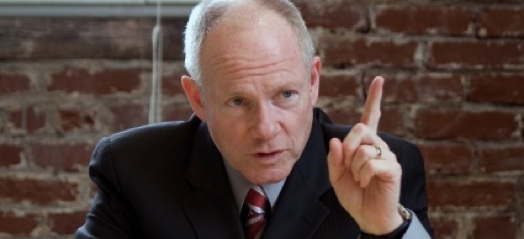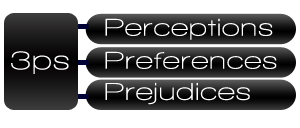The Best Closers Do This!
It is said, “If you don’t ask for the business, you won’t get the business.” Every one of you has heard that comment stated in one way or another, and probably from your sales manager.
____________________
Fact is that in the world of professional sales you probably need some skill in closing technique, yet I am of the belief that skill might be a little overemphasized. Those who sell features and benefits normally initiated the conversations with their customers with an in-depth conversation about their needs. If this conversation is conducted correctly, significant progress is made toward your close based on this conversation. It is important to realize that, if you have a solid relationship (see Black Sales Journal 7/11/2011 Customer Relationships Revisited) your need to manipulate and maneuver someone into a ‘hard’ close is not as important as it is if you are selling with no relationship. They will give you all of the signals in the world because they trust you and believe that they can be open with you.
The close can be a really simple part of the sales process. Many make it one of the most complicated depending on their view of the activity. Many organizations require their sales professionals to undergo much training about the close and close techniques. Realistically a close should be very natural. Basically a successful close is the natural result of probing, answering, supporting, and problem solving. The natural close is what happens when the objections have disappeared and the comfort levels are high. That comfort is with you, your product, and your company.
It Begins With You – Know Your Relationship Level
Are you a trusted advisor, counselor, or business friend? If you are, you have developed a relationship along the way that will allow you to logically close without sounding like you are “Willy Loman” (Death of a Salesman). In this type of relationship you have done the ‘heavy lifting’ upfront and secured the opportunity to guide someone through the sales process with the close being much like a ‘soft’ landing. It is obviously the best way, as someone trusts you to help him or her make a good decision.
If you are not there, you may have more work to do with the buyer to develop their degree of trust. That is not bad either. But attempts to constantly maneuver someone into the corner that you are calling a close could eventually backfire if your relationship is lacking. Asking the little questions to get the prospect used to saying “yes” is an akin to basic manipulation in the eyes of buyer. Let’s not insult the buyer’s intelligence. Do you think they don’t know this is happening? If you are adept at it, you might ‘tick’ them off even more. Know that the nature of the relationship governs your ability to move to the ‘soft’ landing that is a successful close.
If you read this journal you recognize my suggestion to ‘master the relationship’. If you can’t develop a strong relationship before the time is necessary to close, I would definitely suggest being careful about a high-pressure close. The objective is to be seen by the buyer you as a potential trusted confident and advisor, a professional who can provide value and solutions for their organization.
You never want them to see you as someone targeting them for a ‘hard sell’. If they do, your calls will cease to be returned, and you will hear less and less from the buyer if they do not give you the ‘all out’ boot.
The Logical Conclusion
Remember to view the close as a logical conclusion to a sales process. This conclusion may, or may not, be successful, but it will disclose the buyers sentiments if done correctly. If it is done prematurely, it will uncover objections that you may not know about, and at that point you will have an opportunity to continue to probe and solve. There is sound logic to this approach—if you cannot get sound feedback from the buyer, move to close then the objections will be stated and can be addressed.
Once again the relationship is key. I do recognize that there are many types of products, sales cycles, and situations that do not give you an opportunity to develop the ideal relationship. In those cases, you might be building the relationship over several sales cycles. If you are lucky success will be early, but if not, you will naturally modify your close techniques when the relationship is strong.
Master the relationship.
We welcome your comments. You can reach me at Michael.Parker@BlackSalesJournal.com.
 September 19, 2016
|
Posted by Admin9!
September 19, 2016
|
Posted by Admin9!

 Categories:
Categories:  Tags:
Tags: 


Your Comments